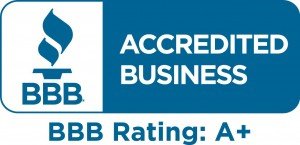
We’ve talked about interviews before, here and here, but this topic should be addressed in what we like to call the 3 Ts for Interviewing Top Talent. Before you head into your next interview, write down these tips to maximize the interview process.
Talent: We know this might seem ridiculously simple, but schedule interviews with those who solely fit the job description. You’d be surprised how many interviews are scheduled with candidates who lack the core expertise needed for the job. It happens all the time; employers trying to fill an interview slot instead of focusing on the job skills. If you’re a hiring manager, it’s easy to get derailed with candidates who “might be” a good fit, especially when another department recommends a candidate. It’s a balancing act to be sure, but go steady with caution. It’s these types of decisions that can prolong interviews and mislead a candidate. Stay focused and stay the course, choosing candidates with core skills, and you’ll find your interview process improving. As for job seekers, we recommend not getting sucked into an interview with a job that doesn’t fit your expertise. If you’ve been invited to an interview, decline those that don’t make sense. What happens often when you do attend an interview like this is both sides end of taking longer because all parties will try to determine a core fit. Interviewing candidates who have less of what you need will in most cases waste time for both the job seeker and employer. Focus on talent that fits your job description first and you’ll find your interviews will be more productive and will save a lot of time.
Time: We’ve talked a lot about keeping your interview process organized. If you want to know more about what candidates like, read our “The Best Places to be Interviewed Insights” post where 29% of candidates surveyed said they appreciated companies that were well organized. As a standard, an interview should last approximately 45 minutes to an hour, unless a person is scheduled for multiple interviews with a company. In a situation where a company is interested in a candidate and requires multiple interviews, our recommendation is to keep the interviews to a minimum of three interviews in a half-hour to forty-five-minute increments. Anything longer than a two-and-a-half-hour time frame is really only necessary for higher-level candidates such as VP or C-level. The problem with having an overly long interview for a mid to lower level is it translates to poor management. Not everybody needs to be a part of every hiring decision. A hiring manager or department manager should know within the first-half hour if a candidate has the making of a good hire. If you’re an employer and you’re spending hours interviewing one candidate, you need to take a closer look at revising your process.
Technique: The best way to make the most out of every interview and save time and money hiring the right person, is to improve your interviewing techniques during the interview process. One recommendation we have is to look beyond the interview questions. Sometimes asking a question like “What do you do for fun?” can emit an automatic response that will be more natural and honest. Try looking for non-verbal cues too such as facial expressions and voice tone. A small tell like these can provide incredible insight in a person. Did they take the time to research your business’ latest news? Did they ask the right questions about your business? Try monitoring a candidate’s interest in not just the job, but also your company’s brand. Something as simple as this, can be an easy way to assess a person’s fit into your corporate culture. In addition, try using a grading rubric when interviewing. It helps the interviewer stay on track and at the end of the interview, you can go back and review how a candidate scored. Additionally, a job seeker can glean substantial information about a company just by evaluating their own interview. Interviewing techniques like evaluating time management, informal questions and non-verbal cues can provide great insight into a potential employer. Remember, the interview is a two-way street of communication where both can watch and learn from each other.
If you’re challenged with improving your interview process, contact us for a free consult.
ABOUT THE AUTHOR, Ingrid Moore
Ingrid Moore is the President and Owner of Corporate Resources of Illinois, an employment & staffing agency with over 20+years’ experience located in Schaumburg, IL. Ingrid and her team assist employers with finding the right hire for their business. For more info, follow us on our LinkedIn Company Page, or follow us Corporate Resources of Illinois‘s Google+ page.




